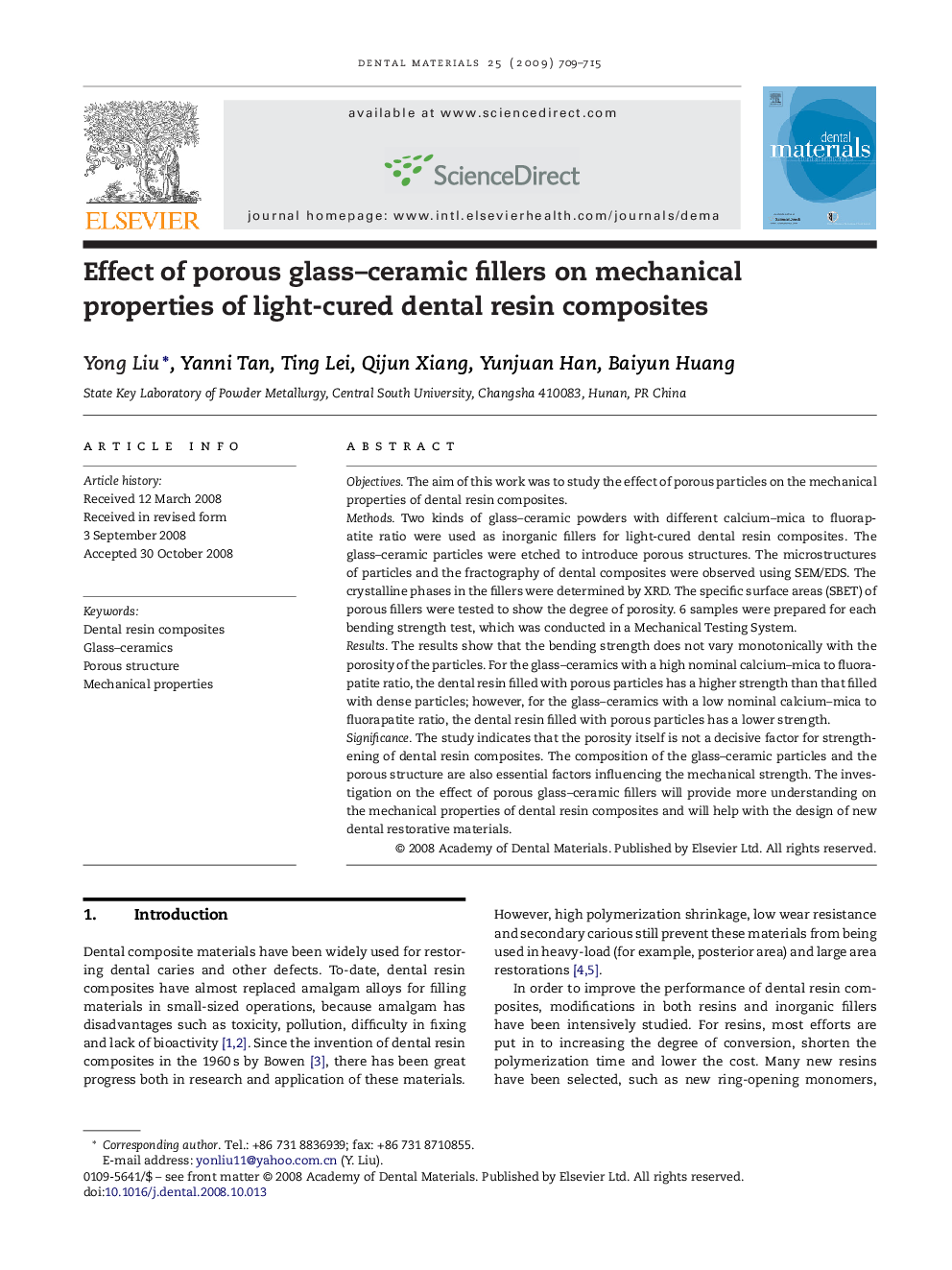| Article ID | Journal | Published Year | Pages | File Type |
|---|---|---|---|---|
| 1422334 | Dental Materials | 2009 | 7 Pages |
ObjectivesThe aim of this work was to study the effect of porous particles on the mechanical properties of dental resin composites.MethodsTwo kinds of glass–ceramic powders with different calcium–mica to fluorapatite ratio were used as inorganic fillers for light-cured dental resin composites. The glass–ceramic particles were etched to introduce porous structures. The microstructures of particles and the fractography of dental composites were observed using SEM/EDS. The crystalline phases in the fillers were determined by XRD. The specific surface areas (SBET) of porous fillers were tested to show the degree of porosity. 6 samples were prepared for each bending strength test, which was conducted in a Mechanical Testing System.ResultsThe results show that the bending strength does not vary monotonically with the porosity of the particles. For the glass–ceramics with a high nominal calcium–mica to fluorapatite ratio, the dental resin filled with porous particles has a higher strength than that filled with dense particles; however, for the glass–ceramics with a low nominal calcium–mica to fluorapatite ratio, the dental resin filled with porous particles has a lower strength.SignificanceThe study indicates that the porosity itself is not a decisive factor for strengthening of dental resin composites. The composition of the glass–ceramic particles and the porous structure are also essential factors influencing the mechanical strength. The investigation on the effect of porous glass–ceramic fillers will provide more understanding on the mechanical properties of dental resin composites and will help with the design of new dental restorative materials.
